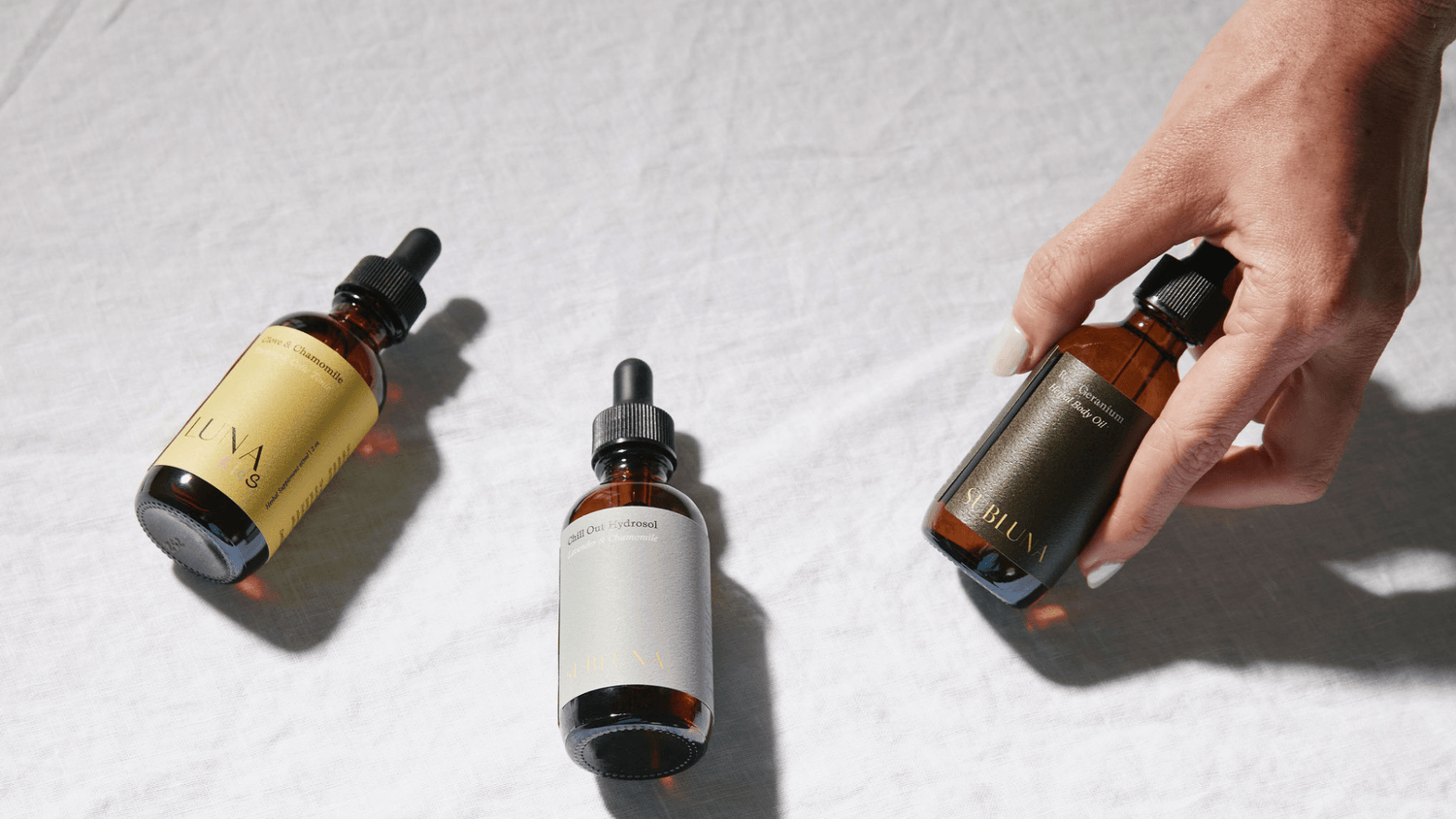MOLD: More Than Just A Four Letter Word
Mold Toxicity: Understanding and Addressing Health Impacts with Herbal Support
Mold toxicity is becoming an increasingly recognized health issue, affecting countless individuals in both visible and insidious ways. Exposure to mold can trigger a wide array of symptoms and health problems, stemming from its ability to release mycotoxins, potent toxins that can severely affect one's health. When mold spores are inhaled or ingested, they can lead to inflammatory responses throughout the body, impacting vital systems and functions.
Common symptoms of mold exposure include respiratory issues such as coughing, wheezing, and difficulty breathing, which are direct responses to irritants affecting the lung tissue. However, the impact of mold extends beyond the respiratory system. Over time and repeated exposure, individuals may experience chronic fatigue, headaches, memory problems, mood swings, and more, indicating the systemic nature of mold toxicity. Moreover, prolonged exposure can exacerbate sensitivity to mold, leading to more severe reactions over time.
While the fear of mold has taken over much of the wellness world, at SubLuna, we recognize the serious effects mold can have without adding to the fear culture surrounding it. Our focus is on creating a culture of resilience by equipping our bodies to handle external stressors, including mold, without fear or panic. If mold toxicity ever does become a concern for you or your loved ones, we are here to clear the overwhelm with simple, effective options for herbal support.
Our Approach to Mold Detoxification: Herbal Support for Resilience
Our approach to mold detoxification is simple, focusing on herbs that support the body's natural resilience, major organ systems, and detoxification pathways:
Adaptogens: Enhancing Resilience to Stress
Adaptogens can be taken daily to increase resilience to mold and other stressors before known exposure occurs. They are also useful afterward to support increased stress resilience and fortitude, modulate inflammation, and support a taxed immune system:
- Reishi: Supports immune function and reduces stress by modulating the body’s inflammatory and stress responses.
- Ashwagandha: Enhances resilience to stress and supports overall vitality by stabilizing mood and energy levels, along with enhancing cognition.
- Schisandra: An antioxidant-rich adaptogen that aids in liver function and stress management while effectively lowering inflammation.
- Tulsi/Holy Basil: Supports healthy cortisol levels, the immune system, and has anti-inflammatory properties.
- Astragalus: Acts as a “shield” to the immune system, effectively strengthening the front lines of pathogen defense, preventing mold from getting further in the body.
Lung Health: Strengthening Lung Tissue
Supporting your lungs is crucial in preventing respiratory issues and maintaining overall lung health, especially in the presence of mold. Herbs that support the lungs help to fortify lung tissue, improve symptoms of restricted breathing and respiratory illness, and improve overall oxygenation of the body:
- Ginkgo: Opens restricted airways and supports respiratory health by improving oxygen utilization.
- Elecampane: Known for its lung-strengthening properties, helps in stimulating the lower lungs to clear mucous.
- Mullein: A soothing herb that supports healthy lung tissue, reduces cough, and aids in opening tight airways.
- Reishi: Strengthens the lungs and reduces inflammation.
- Tremella: Considered a lung tonic as it hydrates and supports lung function, especially beneficial in dry or irritated respiratory conditions.
Herbal Nervines: Restoring Nervous System Health
Mold exposure can significantly impact the nervous system, leading to symptoms such as anxiety, mood swings, irritability, and cognitive impairments like memory loss and difficulty concentrating. These symptoms arise as the body’s response to the neurotoxic effects of mold, which can alter neurotransmitter functions and overall brain health.
In addressing these issues, it’s beneficial to use a variety of herbal categories to help support various symptoms, reverse brain damage, and improve brain function:
- Relaxing Nervines: Calm the nervous system, reducing tension and easing symptoms of stress and anxiety.
- Hops: Known for its sedative properties, effectively calms the nervous system, promoting relaxation and aiding in sleep.
- Passionflower: Supportive for hyperactivity and circular thinking.
- Motherwort: Offers heart and nervous system support by calming heart palpitations associated with anxiety and feelings of panic.
- Nervous System Trophorestoratives: Nourish and restore the nervous system over time, helping to rebuild nerve tissue and improve overall neurological function, which is crucial for long-term recovery from mold exposure.
- St. John’s Wort: Alleviates depression and mood disorders by normalizing neurotransmitter activity.
- Milky Oats: Nourishes and strengthens the nervous system, especially in times of high stress.
- Skullcap: Aids in the regeneration of nervous tissue and calms nervous agitation.
- Neuroprotective Anti-inflammatory Herbs: Protect the brain from inflammation and oxidative stress, safeguarding against the neurotoxic effects of mold and promoting overall brain health.
- Chinese Skullcap: Offers potent brain anti-inflammatory properties, protecting the brain against oxidative stress.
- Feverfew: Traditionally used to treat migraine headaches, reduces inflammation in the brain.
- Turmeric: Reduces brain inflammation and protects against neurotoxic effects, aiding cognitive function.
- Lion’s Mane Mushroom: Helps the brain to grow new neural pathways while protecting against inflammation.
Gut Health: Maintaining Gut Integrity
Mold exposure can profoundly affect gut health, contributing to a range of digestive issues. Mycotoxins can disrupt the gut microbiome, leading to symptoms such as bloating, constipation, diarrhea, candida overgrowth, and abdominal pain. Moreover, chronic exposure to mold can compromise the intestinal barrier, resulting in leaky gut syndrome. This condition allows toxins, undigested food particles, and microbes to pass into the bloodstream, causing widespread inflammation and autoimmune responses:
- Olive Leaf: Known for its antimicrobial properties, Olive Leaf helps to balance the gut flora and fight off Candida overgrowth.
- Chinese Skullcap: Starves bad gut bacteria, supports gut integrity and reduces inflammation, which is crucial in healing leaky gut syndrome. Also improves histamine/mast cell response.
- Elecampane: Enhances digestive health, tightens leaky gut tissue, and can help alleviate symptoms associated with poor gut function.
- Culinary Herbs: Including Oregano, Rosemary, Thyme, and Sage, these herbs not only enhance flavor but also possess strong antimicrobial properties that help maintain gut health and integrity.
Minerals: Replenishing Depleted Nutrients Amid Mold Toxicity
Mold toxicity can lead to significant loss of essential minerals due to several factors. The stress response triggered by mold exposure often leads to adrenal exhaustion, which in turn can deplete the body’s store of magnesium, zinc, and other vital minerals. Furthermore, mold detox protocols themselves often involve chelating agents or other binders, which can inadvertently remove minerals along with toxins. Additionally, the presence of mold can cause malabsorption of minerals from food due to gastrointestinal issues like leaky gut syndrome. This condition not only allows toxins to enter the bloodstream but also prevents the effective absorption of nutrients, exacerbating mineral deficiencies.
To counter these effects, it’s crucial to include mineral-rich herbs that can help replenish these lost nutrients:
- Nettle: Known for its high mineral content, particularly iron and calcium, which are often depleted during stress and detoxification processes.
- Rosehip: Rich in vitamin C, which enhances mineral absorption, crucial during times of compromised gut health.
- Dandelion: Provides potassium and supports liver function, helping to improve overall metabolic health and mineral balance.
- Oatstraw: High in magnesium and silica, oatstraw is excellent for supporting nervous system health and restoring mineral levels.
- Blackberry Leaf and Fruit: Offers a variety of minerals and vitamins, helping to fortify the body during and after mold exposure.
Feeling Overwhelmed?
Don’t worry! Many of these herbs, like Reishi Mushroom, are “repeat offenders” and can support you in more than one category. You don’t need to take a ton of herbs from each category, but just a couple of well-chosen ones depending on your goals. Here are some examples that exemplify this versatility:
- Reishi Mushroom: Supports the lungs, stress response, detox pathways, nervous system, and gut. Explore our Triple Mushroom Extracts and Beauty and Bliss Rosemary Cacao for comprehensive support.
- Schisandra Elixir: Known for its adaptogenic properties, it supports liver health, stress response, brain inflammation, and overall vitality.
- Elecampane: Helps support gut and lung health.
- Nettle: Mineral-rich, supports a healthy histamine response, and cleanses the blood.
- Chinese Skullcap: Neuroprotective, supports gut health, improves histamine response.
By incorporating these herbs into your routine, you can support your body in managing mold-related stress and maintain overall health. Mold exposure can be daunting, but with the right herbal strategies, you can protect and enhance your body’s natural resilience.
Knowledge is a powerful tool against the overwhelm and fear associated with mold toxicity. At SubLuna, we are dedicated to equipping you with an armor of wisdom, providing not only effective herbal products but also the knowledge to use them wisely. This enables you to combat not only mold toxicity but also the fear surrounding it.



